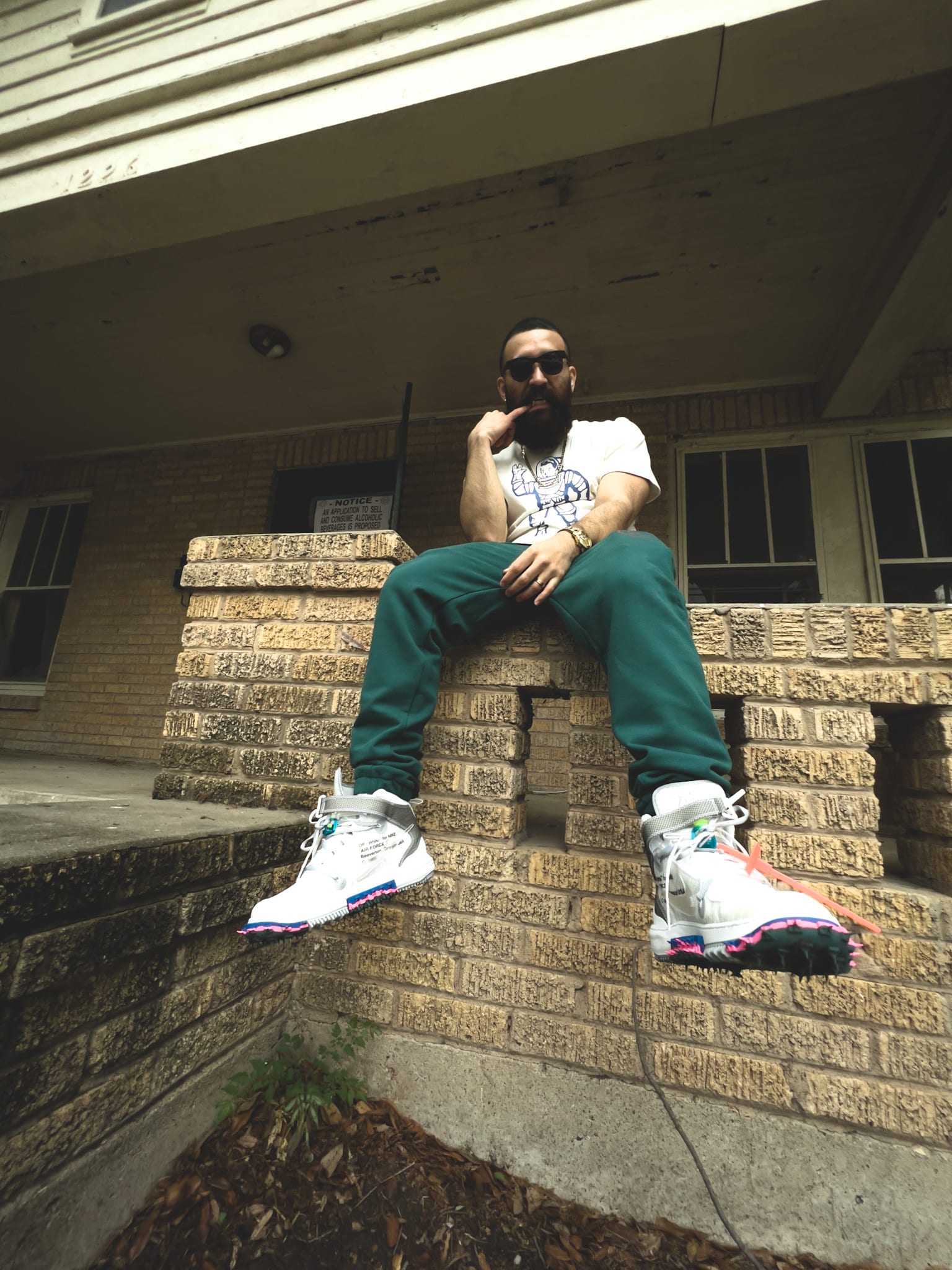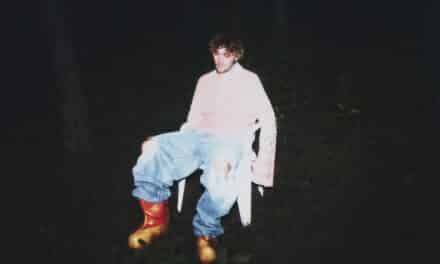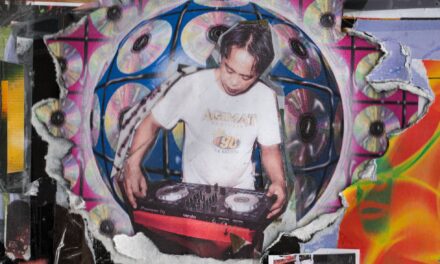For some artists, an album is a collection of songs. For others, it’s a lifeline—a chance to piece together fragments of lived experience into something that feels whole. With Take Me Home, that’s exactly what we get: a body of work that explores what it means to search for belonging when “home” isn’t tied to a place, but to fleeting moments that shape you.
“Finishing this project made me realize: I’ve never truly felt ‘at home’ in the traditional sense. But I’ve felt it in moments drinking with my late friends, growing up where my uncles grew up, falling in love for the first time, talking about lowriders on the driveway. Home isn’t always a place. Sometimes it’s a moment, a state of mind, a feeling of peace. I didn’t find that peace by rushing… I had to take the long way home.”
That sense of reckoning—nostalgic, mournful, but ultimately liberating—runs through every track.
Escapism
The project opens with a sprint: a song built for the nights when you’d rather disappear into basslines and laughter than face the weight of the real world.
“Some nights I needed out away from the noise, the pressure, the expectations. I remember when freedom was as simple as friends, cheap speakers, and not caring about tomorrow. ‘Escapism’ is that rush bottled up like chasing one more perfect night where nothing else matters.”
It’s reckless youth bottled in melody—a reminder of when freedom wasn’t philosophical, it was visceral.

Antigravity
Where Escapism bursts forward, Antigravity hovers. It’s a track that feels suspended, like exhaling after carrying too much for too long.
“There were days where life felt heavy—like I was sinking in it. The only way I knew to cope was to float above it, even just for a little while. ‘Antigravity’ is that moment of letting go, where the smoke clears, the weight lifts, and you finally feel lighter again.”
It’s both a coping mechanism and a statement: sometimes survival means learning how to drift.

Rumination
Grief doesn’t just vanish—it lingers, folds itself into who we are, and waits for us in quiet moments. That’s the space Rumination inhabits.
“Sometimes I catch myself replaying everything we went through—the people we lost, the hurt we carried too young, the memories that still sit heavy. ‘Rumination’ came from that space. It’s not just sadness, though—it’s a way of honoring it, giving those ghosts a voice, so they don’t own me anymore.”
It’s not just a song, but a ritual: a chance to carry memory without being crushed by it.

Programmed
If Rumination is about making peace with the past, Programmed is about refusing to let it define the future.
“I used to feel like the world had a script for me—like I was stuck playing a part that didn’t fit. ‘Programmed’ came from breaking out of that box, realizing I get to write my own story. It’s me saying I’m proud of where we come from, and know where I am headed.”
It’s both a reclamation and a declaration of independence: refusing to stay trapped in cycles that weren’t built for you.
With Take Me Home, every track is a mile marker on a journey—sometimes running, sometimes drifting, sometimes stopping to confront the weight of memory. It’s a record about finding your way, not to a single destination, but to a sense of peace that comes from embracing every version of “home” you’ve known





